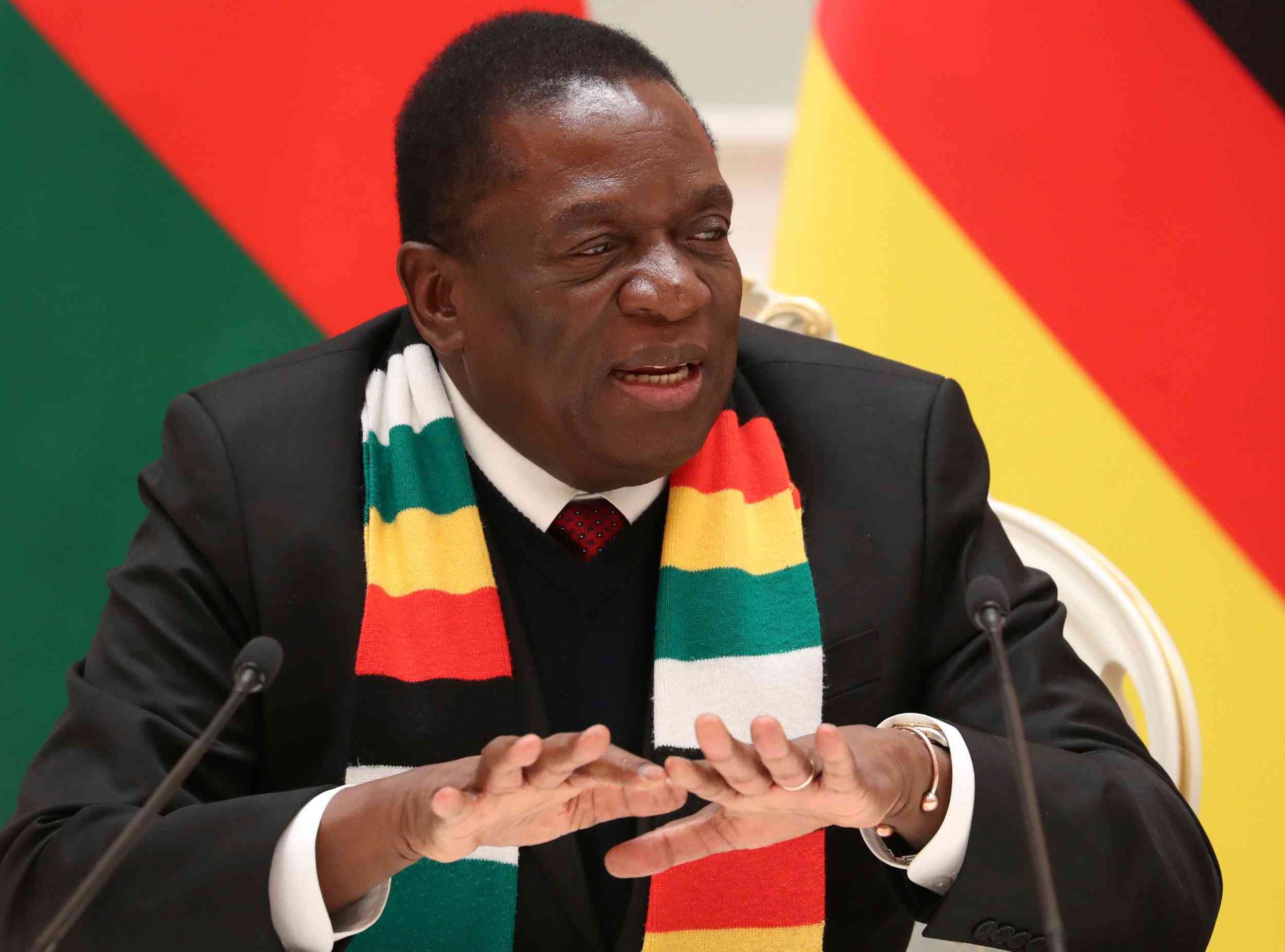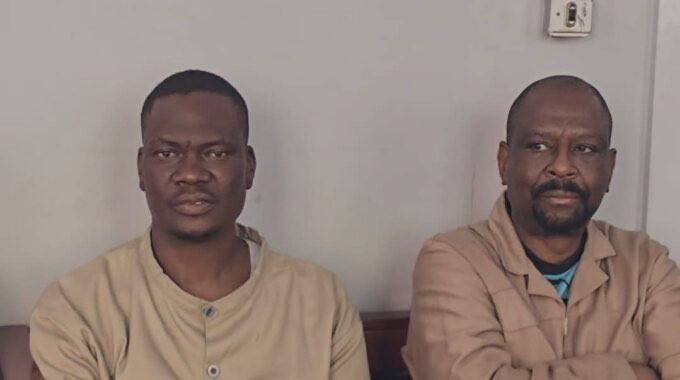
Zimbabwean president Emmerson Mnangagwa is presently at odds with some veterans of Zimbabwe’s 1970s liberation war.
This group of liberation war veterans has pledged support for Vice-President Constantino Chiwenga, and called on Mnangagwa to resign the presidency because of high levels of corruption under his watch.
These liberation war veterans also accuse Mnangagwa of plotting to extend his presidential term beyond 2028, despite having failed to address Zimbabwe’s deep social and economic problems.
In 2017, liberation war veterans in and outside the military were responsible for staging the coup that ousted late former president Robert Mugabe from power and installed Mnangagwa as his successor. This has resulted in speculation that the ongoing spat between certain liberation war veterans and Mnangagwa indicates another coup may be brewing.
Talk is that the military is backing Chiwenga. In reality, Chiwenga does not have the military’s undivided support for his political ambitions. To understand some of these divisions in the military’s upper ranks, we must first return to the past.
It is December 13, 2008. Night has fallen. Zimbabwe’s Air Marshal Perrance Shiri is driving alone to his commercial farm. The road leading to his farm is narrow and gravelly. Shiri drives down a hill that leads to a small bridge across a flowing river. On the other side is another hill that his car must ascend. Just as Shiri’s car reaches the bridge, a group of unidentified men stationed at the foot of the hill start shooting at him.
Thick vegetation and dim light prevent Shiri from seeing the shooters. Blood spurts from the right side of Shiri’s body, painting the driver’s seat red. The gunfire is relentless, but Shiri presses his hefty foot against the accelerator in a bid to escape. The shooters do not stop firing. They have been sent to assassinate Shiri. But Shiri is even more determined to live.
Right-handed and shot, Shiri relies on his left arm to drive himself to a medical facility. Shiri briefly stops his car to make a call to major-general Paradzayi Zimondi, the head of Zimbabwe’s Prison Services.
- NoViolet Bulawayo’s new novel is an instant Zimbabwean classic
- Jah Prayzah, Zanu PF rekindles ‘lost love’
- Bank workers appeal to Ncube for tax relief
- Indosakusa marks 21-year anniversary milestone
Keep Reading
“I have been shot”, Shiri says. Soon after arriving at the medical facility, Shiri is visited by Zimondi whom he confides in about the attempt on his life.
A top military officer unexpectedly arrives at the medical facility, expressing grave concern about Shiri’s shooting. Zimondi and Shiri exchange glances. They did not inform anybody in the military that an assassination attempt had just taken place. Their eyes convey suspicion about how the military officer knew about the attempt on Shiri’s life, immediately after the shooting.
As Major-General Zimondi recounted, at sunrise, a team of investigators mobilised by Shiri’s military allies arrived at the scene of the shooting.
They recovered used cartridges and bullets from the guns used in the assassination attempt.
Their investigation revealed that both the ammunition and guns were manufactured by the Zimbabwe Defence Industries (ZDI), which is run by the Zimbabwean military.
The shooters were never apprehended and put on trial, resulting in wariness between top military officers after Shiri’s shooting.
There were other internal differences and suspicions between top military officers, before they ousted Mugabe in 2017. Some soldiers, such as the current ZDF commander Philip Valerio Sibanda, believed they were more professional and competent than other top military officers. Some leading officers were critical of other high-ranking officers accused of corruption. Authority struggles and duelling career ambitions were also in play.
However, as my book The Overthrow of Robert Mugabe shows, in 2017 high-ranking military officers generally worked together to stage a coup against Mugabe. Leading officers mostly put their differences aside in the coup because they collectively feared losing their jobs and material privileges. They also deeply resented Mugabe’s perceived sidelining of their fellow liberation struggle actors and values in the ruling Zanu PF.
But the shared interests that once united top military officers against civilian authority in 2017 are no longer there today. Some of the key 2017 coup makers are now dead.
Presently, top officers do not, as a collective, feel that their jobs and access to material privileges are threatened under Mnangagwa. Nor are the remaining liberation war veterans entirely united against Mnangagwa on the grounds that he is opposed to the liberation war generation and its values.
Mnangagwa is also an attentive manager of his relations with top military officers, deploying a range of strategies to maintain loyalty, and ensuring that leading officers have access to patronage –— a skill Mugabe lost in his final years.
Thus, despite his desire to succeed Mnangagwa as President, Chiwenga does not have the undivided support of generals in the military. Even as one of the instigators of the 2017 coup, Chiwenga now has the challenge of navigating some of the old divisions that exist between top officers. And Chiwenga must contend with Mnangagwa’s crafty management of his relations with serving top military officers.
As political divisions within the military persist, there is still the possibility of another coup in Zimbabwe. If it does occur, it is likely to emerge from lower-ranked soldiers who are less integral to the Mnangagwa regime and more affected by Zimbabwe’s socio-economic problems.
But coups led by junior soldiers only succeed 32% of the time. They are also more likely to be characterised by upheaval and instability because junior soldiers often have to charge their way to power. A way out of the continuing political quarrel that involves a coup is far from assured of success and the costs of violence may be too high.
Tendi’s latest book, The Overthrow of Robert Mugabe: Gender, Coups and Diplomats, is available in Zimbabwe via Innov8 Bookshop.











